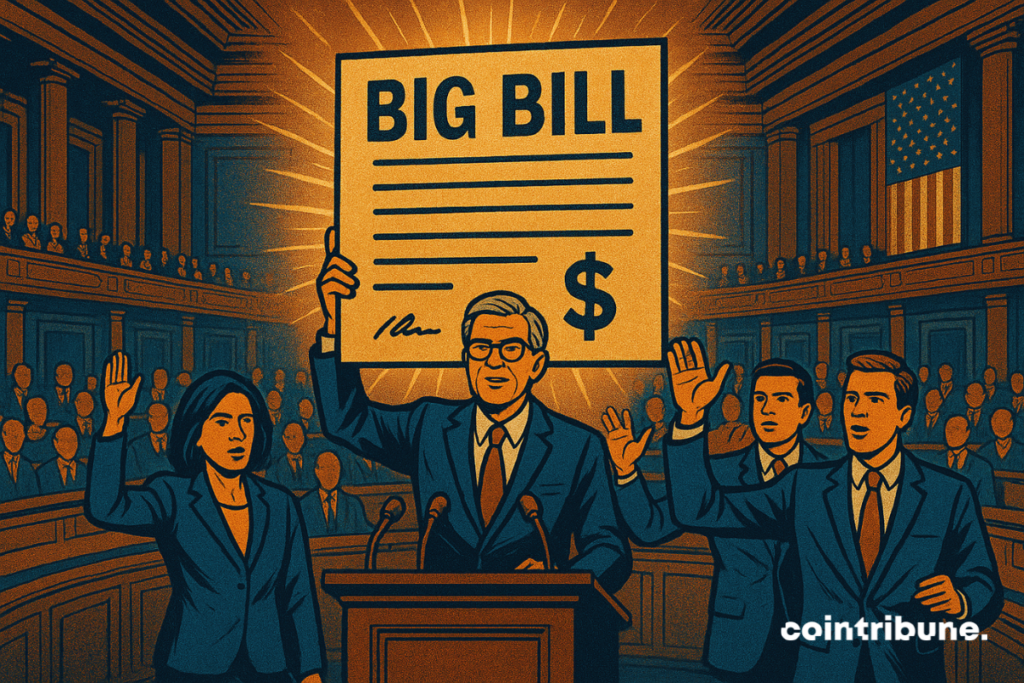Everything You Should Know About the GENIUS Act
On June 17, the U.S. Senate passed the GENIUS Act, short for Guiding and Establishing National Innovation for U.S. Stablecoins Act, by a 68-30 bipartisan vote. If passed by the House and signed by the President, the bill would introduce the first comprehensive federal framework for regulating stablecoins in the United States.

In brief
- Only approved financial entities can issue stablecoins.
- Stablecoins must be fully backed and regularly audited.
- Unregulated stablecoins can’t be sold on U.S. platforms.
The bill’s impact sets strict limits on who can issue stablecoins, what reserves they must hold, how they’re regulated, and what risks they’re allowed to take. It also places new obligations on foreign issuers and crypto service providers.
Here’s a breakdown of what’s in the bill, and what it could mean for the future of stablecoins in the U.S.
What is a “payment stablecoin”?
Under the GENIUS Act, a payment stablecoin is defined as a digital asset that:
- Is designed to be used for payments or settlement
- Is redeemable for a fixed amount of monetary value (not another crypto coin)
- Is expected to maintain a stable value relative to a government-issued currency
This definition excludes traditional bank deposits, securities, and central bank currencies.
Who can issue stablecoins?
The GENIUS Act bans most companies from issuing payment stablecoins, including Big Tech firms and foreign entities, unless they meet strict criteria. Permitted issuers include:
- Subsidiaries of insured depository institutions (e.g. banks and credit unions)
- Federally qualified issuers approved by the Office of the Comptroller of the Currency (OCC)
- State-chartered issuers, but only until they reach $10 billion in issuance, at which point they must transition to federal oversight
Excluded issuers are public companies not primarily engaged in financial services and foreign firms without equivalent regulation.
What’s required of issuers?
If you’re a permitted issuer, the GENIUS Act comes with a long list of rules:
- 1:1 Reserves must be held in ultra-safe assets like U.S. cash, Treasury bills under 93 days, or certain money market funds
- Monthly Reports & Certifications signed by the CEO/CFO, plus third-party audits
- Public Disclosures of outstanding stablecoin supply and reserve composition
- Prohibition on Paying Interest on stablecoins
- Ban on rehypothecation (i.e. reusing) reserve assets
Regulators will also impose capital and liquidity requirements, as well as anti-money laundering (AML) and sanctions compliance obligations, similar to those required of banks.
What does this mean for existing stablecoins?
If a stablecoin isn’t issued under GENIUS rules, it can’t be offered by U.S.-based crypto exchanges or custodians, even if it’s from a foreign issuer.
However, the bill does not ban individuals from using unregulated stablecoins in peer-to-peer transactions or self-custody wallets. But those stablecoins won’t be recognized as “cash equivalents” or allowed as collateral in financial markets.
When does this start?
If passed, the GENIUS Act would become effective:
- 18 months after it’s signed into law, or
- 120 days after regulators finalize their rules, whichever comes first.
Digital asset service providers would have three years to comply before facing restrictions on non-compliant stablecoins.
Why it matters
The GENIUS Act represents a potential turning point in how stablecoins are regulated in the U.S., reflecting Trump’s push to accelerate crypto oversight. It clears the way for institutional adoption by offering regulatory clarity, but it also raises the bar for entry. Only heavily supervised entities will be allowed to issue stablecoins, shutting out many of today’s largest players unless they adapt.
Maximize your Cointribune experience with our "Read to Earn" program! For every article you read, earn points and access exclusive rewards. Sign up now and start earning benefits.
I've been passionate about crypto for nearly a decade, ever since I was young and first became curious about investing. That early spark led me to years of research, writing, and exploring the future of decentralized tech.
The views, thoughts, and opinions expressed in this article belong solely to the author, and should not be taken as investment advice. Do your own research before taking any investment decisions.